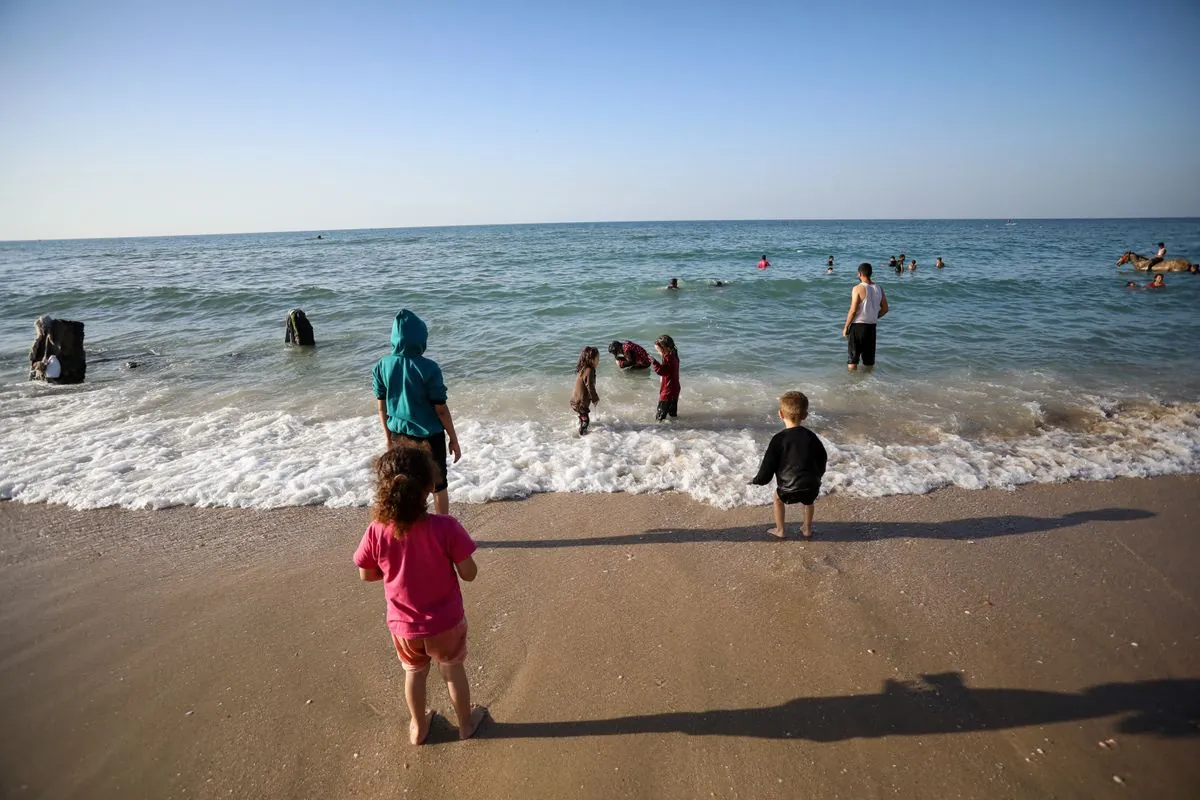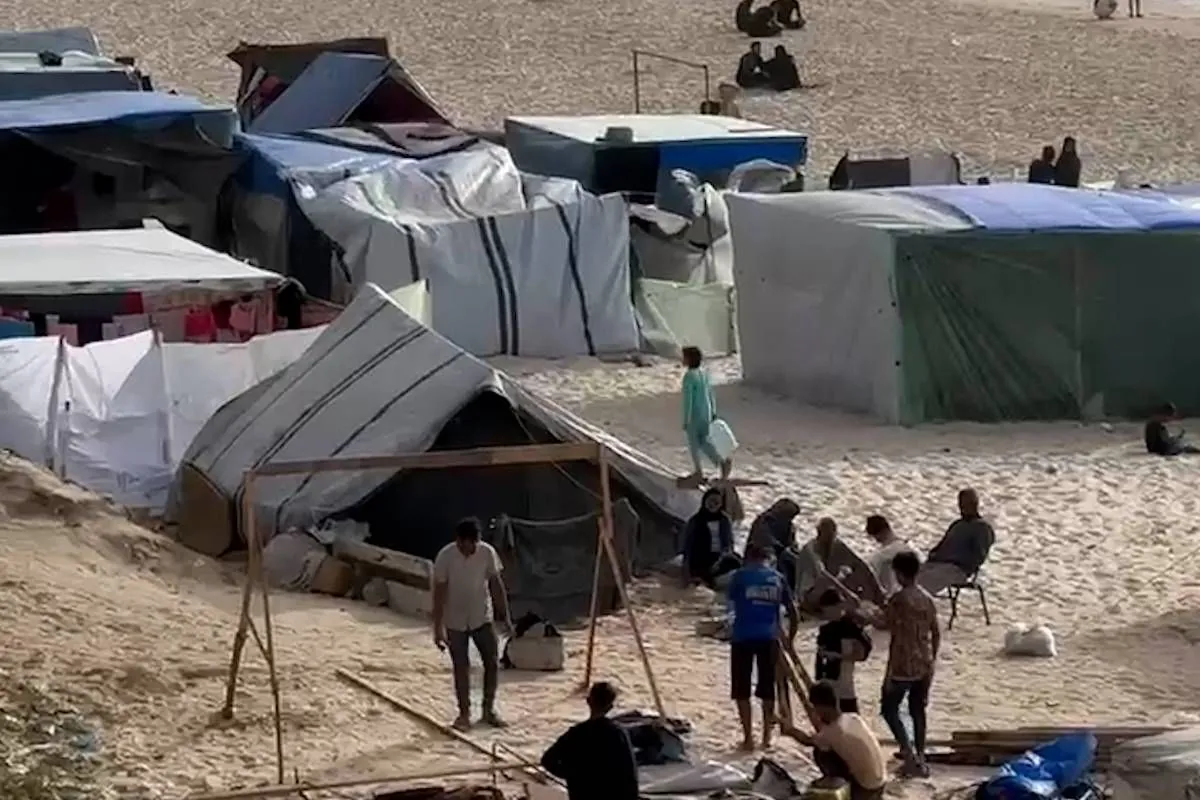Gaza Crisis Deepens: Strikes, Displacements, and Stalled Peace Talks
Israeli strikes in Gaza cause casualties as displaced Palestinians crowd coastal areas. A hostage rescue operation succeeds, while ceasefire talks in Cairo show little progress amidst a worsening humanitarian crisis.

The ongoing conflict in Gaza continues to escalate, with recent Israeli military actions resulting in Palestinian casualties. Health officials in Gaza report that at least 22 individuals lost their lives due to Israeli strikes across the territory. This latest development underscores the dire situation in one of the world's most densely populated areas, where over 5,000 people inhabit each square kilometer.
Displaced Palestinians, forced to evacuate by recent orders, have sought refuge along Gaza's 41-kilometer Mediterranean coastline. This mass movement towards the shore highlights the shrinking safe spaces within the enclave. A displaced woman from Gaza City, now residing in western Deir Al-Balah, expressed her frustration: "Maybe they should bring ships, so next time they order people to leave we can jump there, people are now on the beach near the seawater."

Amidst the ongoing hostilities, Israeli forces successfully conducted a "complex operation" in southern Gaza, rescuing Qaid Farhan Alkadi, a hostage taken on October 7, 2023. Israeli authorities reported that Alkadi's medical condition was normal following the rescue.
Ceasefire negotiations continue in Cairo, but progress remains elusive. Key issues separating the parties include control over critical corridors. Israel insists on maintaining authority over the Philadelphi Corridor, a narrow strip along the Gaza-Egypt border, citing concerns about weapons smuggling. Additionally, Israel demands checks on movement across the Netzarim Corridor, which bisects the Gaza Strip, to prevent armed fighters from traveling northward.
The humanitarian crisis in Gaza continues to worsen. The territory has been under blockade by Israel and Egypt since 2007, leading to severe economic hardships. Gaza's unemployment rate exceeds 40%, one of the highest globally, and the majority of its population relies on humanitarian aid for basic necessities. The situation is further exacerbated by the limited operation of Gaza's only power plant due to fuel shortages.
United Nations aid operations in Gaza have ground to a halt following new evacuation orders issued for Deir Al-Balah, where the UN operations center was located. This disruption comes at a critical time when the UN was preparing to vaccinate an estimated 640,000 children against polio, after at least one case of the disease was identified.
The conflict has taken a devastating toll on Gaza's infrastructure and population. More than 40,400 Palestinians have lost their lives since the war began, according to Gaza's health ministry. The territory's 2.3 million residents face acute shortages of food and medicine, with many having been displaced multiple times.
As the crisis persists, the international community continues to call for a resolution to the conflict. However, with both sides blaming each other for the lack of progress in negotiations, the path to peace remains uncertain.
"Those who are inside the house, look who they are, women and children, these are their targets."
The ongoing conflict underscores the complex challenges facing the region, including the depletion and contamination of Gaza's main water source, its aquifer. As the crisis enters its eleventh month, the need for a sustainable solution becomes increasingly urgent to address the humanitarian needs of Gaza's young population, where about 40% are under the age of 14.


































